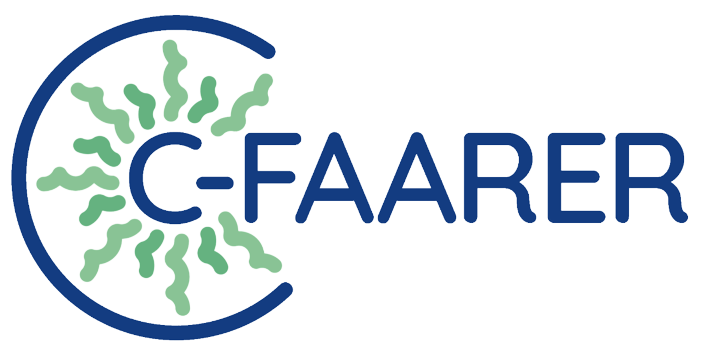Kick-off with All Partners for the C-FAARER Project: A Path Towards Regenerative Ocean Farming
Introduction
On June 2nd, 2023, Trinity College Dublin, Nofima, Norwegian Seaweed Association, Horizon Nua, Redrose Developments, and Sea Going Green came together for the first time to embark on a two-year project. During the kick-off meeting, we explored the European-Commission policy context and implementation aspects, defined our team visioning and identity, looked at the project planning, and decided on the next steps. In this blog post, we will explore the objectives of the C-FAARER project and the potential benefits it offers to coastal communities and the environment.
Aquaculture has become a dominant model for meeting the growing demand for seafood and addressing economic goals. However, this commercially-driven approach has raised concerns about its long-term sustainability. European nations face a delicate challenge in expanding their blue economy while safeguarding the natural environment's capacity to support life. The C-FAARER project aims to address this issue by fostering a transition towards regenerative ocean farming practices.
Objectives
The primary objective of the C-FAARER project is to pave the way for regenerative, nature-positive outcomes in the aquaculture sector. By guiding ocean farmers, entrepreneurs, and innovators, the project seeks to strike a balance between economic development and the preservation of marine ecosystems.
1. A Roadmap Towards Regenerative Nature-Positive Outcomes
The C-FAARER project offers a clear roadmap to achieve regenerative nature-positive outcomes. It recognizes the urgent need to move beyond mere regulatory efforts and promote practical change on the ground. By encouraging innovation in business models, the project aims to support ocean farmers in adopting sustainable practices that are beneficial for both their operations and the environment.
2. Bridging the Gap between Science and Practice
Amidst a myriad of marine science innovations and breakthroughs, ocean farmers often struggle to translate evidence-based research into actionable practices. The C-FAARER project acknowledges this challenge and provides essential support to farmers. By helping them understand what realistic environmental benefits they can achieve through their actions, the project empowers ocean farmers to contribute effectively to conservation and restoration efforts.
3. Fostering Collaboration and Community Engagement
One of the key components of the C-FAARER project is to promote greater business collaboration with local communities and stakeholders invested in regenerating our oceans. Recognizing that individual efforts are insufficient, the project emphasizes the importance of collective action. By engaging with local development agencies, conservationists, planners, and potential investors, C-FAARER aims to build a strong network that fosters a sense of responsibility for the marine ecosystem's well-being.
4. Strengthening Coastal Communities
The C-FAARER project acknowledges that sustainable aquaculture practices not only benefit the environment but also have positive economic and social implications for coastal communities. By promoting the uptake of regenerative ocean farming practices, the project seeks to strengthen the resilience of these communities. This involves creating new blue economy opportunities and developing regenerative value propositions that involve actors across the entire value chain.
5. Disseminating Best Practices and Knowledge Exchange
As the C-FAARER project progresses, it will continuously review, develop, and communicate best practices in regenerative ocean farming. By disseminating knowledge and facilitating knowledge exchange, the project aims to promote widespread adoption of sustainable practices. This will contribute to the overall growth and enhancement of the aquaculture sector, creating a win-win situation for both stakeholders and the environment.
Conclusion
The C-FAARER project represents a crucial step towards promoting sustainable and regenerative ocean farming practices in the Atlantic and Arctic Sea basins. By providing a roadmap, fostering collaboration, and supporting local stakeholders, the project aims to create a thriving blue economy that respects and protects the marine environment. With the collective efforts of all country partners, C-FAARER holds the potential to bring about positive economic, social, and environmental changes to coastal communities and beyond.

